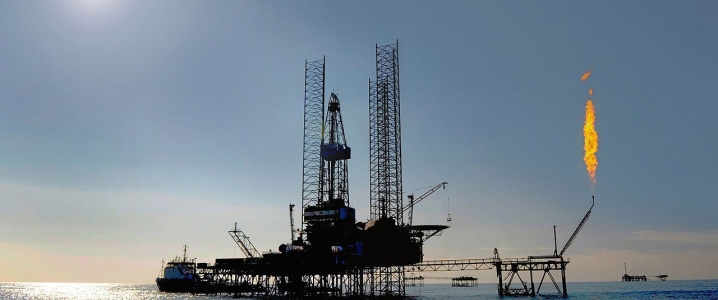August 12th, 2018 could well become a historic day for the Caspian Sea region, with states aiming to end a long-running legal disagreement involving the areas natural resources. Since the breakup of the Soviet Union in the region, Azerbaijan, Kazakhstan and Turkmenistan have all been battling with Russia and Iran for their share of the resource pie in the area. In the coming days, we may well see the resolution of this issue.
For nearly three decades, negotiations have been ongoing on the territorial status of the Caspian Sea and the distribution of its wealth. During the discussions, Russia and Iran formed a bloc as the states with the least energy resources in their territorial waters, while Azerbaijan, Turkmenistan, and Kazakhstan formed another. The latter three insisted that only the countries through whose territory a future pipeline would be traversing should decide on its fate. Moscow and Tehran, however, insisted that all littoral states of the Caspian should receive an equal say in the final decision.
After years of negotiations, Russia and Iran appeared to have finally given in and made a serious concession: article 14 of the agreement forfeits control over the construction of any possible future pipeline. This triumph looks like it will be short-lived however, as an agreement on the environment provides them with a Trojan horse.
On July 20th, the littoral states signed the Environmental Impact Assessment Protocol, an annex to the convention, which makes all five states equal partners when it comes to safeguarding the environment. According to the terms of this agreement, all states are allowed to request explanatory argumentation on how environmental concerns are going to be met. In case the plaintiff is not satisfied, an appeal at an international court remains open, which could delay a project for years if not a decade.
Despite seeming to be a bad deal for Azerbaijan, Turkmenistan, and Kazakhstan in the short term, it makes more sense when taking into account other considerations. Azerbaijan shares the Araz-Alov-Sharg oilfield with Iran and the Serdar-Kapaz and Azeri-Chirag-Guneshli oil and gas fields with Turkmenistan. Until the territorial delimitation of the sea has been agreed upon, exploitation of these resources is not possible. Kazakhstan, despite it being in its interest to have alternative routes to Europe for its energy products, eventually sided with Russia due to obvious economic and political reasons. Related: China’s Oil Futures Jump To Record High
Moscow, on the other hand, had several more reasons to make a concession on article 14 than the environmental protocol. In order for the Trans-Caspian pipeline from Turkmenistan to Europe to be realized, production capacity has to be available. Currently, Turkmenistan exports a significant part of its production to Russia and until 2020 should transport 35 bcm yearly to China via the Central Asia-China line. Due to existing commitments and low production capacity, it will be difficult to fulfill all the existing responsibilities while exporting additional volumes to Europe.
Furthermore, Moscow is confident that pipeline politics is on its side. The construction of infrastructure over hundreds and thousands of miles is an expensive endeavor which requires commercial viability in order to receive financing. Profitability is strongly influenced by the presence or absence of competition. The construction of Turk Stream, exploitation of energy resources in the Eastern Mediterranean, and LNG will all have a negative impact on prices and will hurt producers in the Caspian Sea region.
While Turkmenistan, Azerbaijan, and Iran are now able to exploit shared oil and gas fields, Russia can block alternative suppliers to Europe for the foreseeable future. All the involved parties, with the exception of Turkey, seem to have gained some advantage. Ankara was poised to become a major transit hub for energy to Europe from the Caspian. Turkey appears to have miscalculated the level of support it would receive from the EU in its aim to become an energy hub. Financial uncertainty and political stalemate will prove difficult hurdles to realize an alternative source of energy to Europe in the foreseeable future.
By Vanand Meliksetian for Oilprice.com
More Top Reads From Oilprice.com:
- War-Torn Yemen Restarts Oil Exports
- Diesel Trucks Aren’t Going Anywhere
- India’s Renewable Investments Near $20 Billion


















